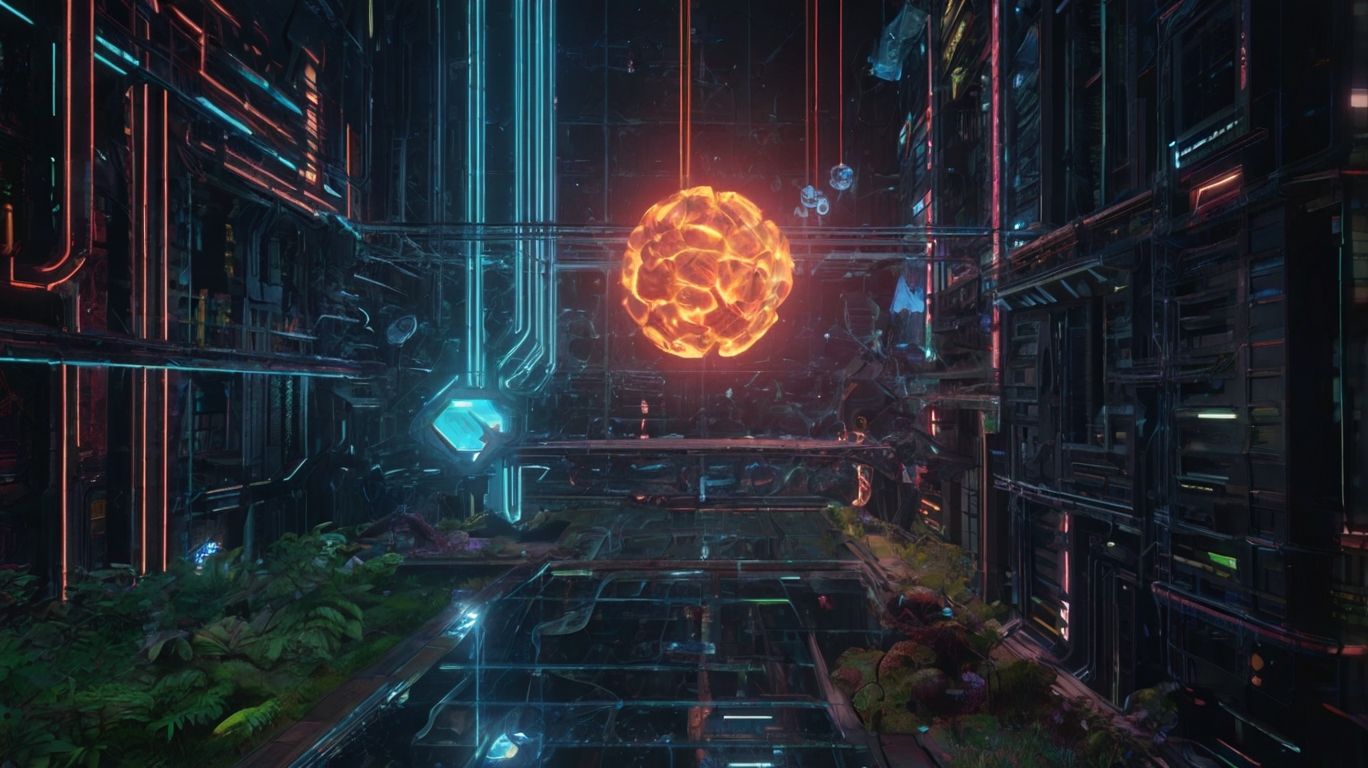
AI is changing how games are made, as well as how they are played and operated. But let’s go back in time to the pixelated past to fully understand the influence of it.
🎮 Before AI: The Age of Scripting and Predictability
In the golden age of gaming—think Doom (1993), Pac-Man (1980), or The Legend of Zelda (1986)—game logic was written by hand. Enemies followed fixed paths, had pre-determined behaviors, and only reacted in pre-determined ways. This simplicity had limitations, but it also had appeal.
Example 1: Pac-Man Ghosts
Each ghost had a unique pattern—Blinky chased, Pinky lurked, Inky was unpredictable (sort of), and Clyde just… did what Clyde did. But it was all deterministic. You have mastered the game after you understand the patterns.
Example 2: Doom (1993) AI
“AI” in Doom was essentially a trigger box. Monsters would patrol or stand idle until a player entered a certain radius, then they’d charge straight ahead. No flanking, no teamwork—just brute force.
Game devs back then had to work around limitations. Want a smarter enemy? Write more complex code. Want dynamic complexity? Manually create multiple game modes. Everything took time and strict constraints.
⚙️ Enter AI: More than just smarter enemies
Back in the present, it’s clear that AI isn’t just smarter—it matters. Here’s how it’s transforming the industry.
1. Dynamic Enemy Behavior
Modern games like Alien: Isolation use AI-driven behavior trees and neural networks to create unpredictable threats. The alien actively picks up on your behavior; if you hide in lockers too frequently, it will begin to check them more frequently.
2. Procedural Content Generation
Games like No Man’s Sky or Minecraft rely on AI algorithms to create huge, unique worlds on the fly. Without it, creating such a scale by hand would take thousands of hours.
3. Adaptive Difficulty
In games like Left 4 Dead, an AI “Director” modifies the rate at which items drop and adversaries spawn according to your performance. This creates a smooth balance between challenge and enjoyment.
4. Player Personalization
Middle-earth: Shadow of Mordor’s Nemesis System tracks interactions between players and enemy Orcs. Personal rivalries are sparked by this, as adversaries remember you and respond differently depending on previous interactions.
🧠 AI-Powered Tools for Developers
Artificial intelligence is not just in the game, it’s in the development process as well. Tools like:
- NVIDIA GauGAN or Scenario.gg for AI-generated art assets
- Unity ML agents for training enemy NPCs
- ChatGPT-style AI for dynamic in-game dialogue
- QA bots that simulate thousands of gameplays to detect extreme bugs
Particularly for independent studios or mobile game makers, these technologies can drastically cut expenses and speed up production.
🕹️ Fresh AI Game Ideas for Clients
Considering creating an AI game? Here are some creative tips.
1. AI Dungeon Crawler
Roguelike where dungeons evolve based on the player’s playstyle. If you rush, levels get tighter and deadlier. If you sneak, generated traps and ambushes become more prevalent.
2. Emotive NPC Village
Create a life simulator or farming game where each NPC has an evolving emotional model. How you interact with them changes their mood, decisions, and even town events.
3. AI-generated Quests
Instead of pre-written missions, use natural language generation to create quests on the fly based on the current state of the game world. Think Skyrim, but infinite and reactive.
4. Real-time Voice Companion
Make a narrative-based mobile game that allows players to voice-chat with an AI partner. Unplanned answers are genuine discussions that are impacted by the actors’ feelings and tones.
5. Predict player behavior
AI can be used to assess player behavior in competitive or PvP games and recommend story branches, customized training bots, or predictable counterstrategies.
🔮 The Road Ahead
We’re just scratching the surface. In the future, AI is expected to:
- Enable truly open gameplay (e.g., talk to any NPC and get a meaningful response).
- Create entire games with minimal human input.
- Strengthen game economies and political systems based on real-time simulation.
- Customize the entire story for each player.
🎤 Final Thoughts from a Gamer
As someone who grew up fighting Space Invaders and now struggles with self-learning modern shooters, I can say this: AI doesn’t kill creativity—it unlocks it.
At Melior Games, we believe in combining old-school passion with cutting-edge technology. AI is a tool, not an end in itself, whether you need active storylines, more intelligent adversaries, or just quicker development times. Make good use of it, and your game will be remembered rather than merely played.
Want to apply AI to your next game project? Let’s brainstorm together. 🚀




